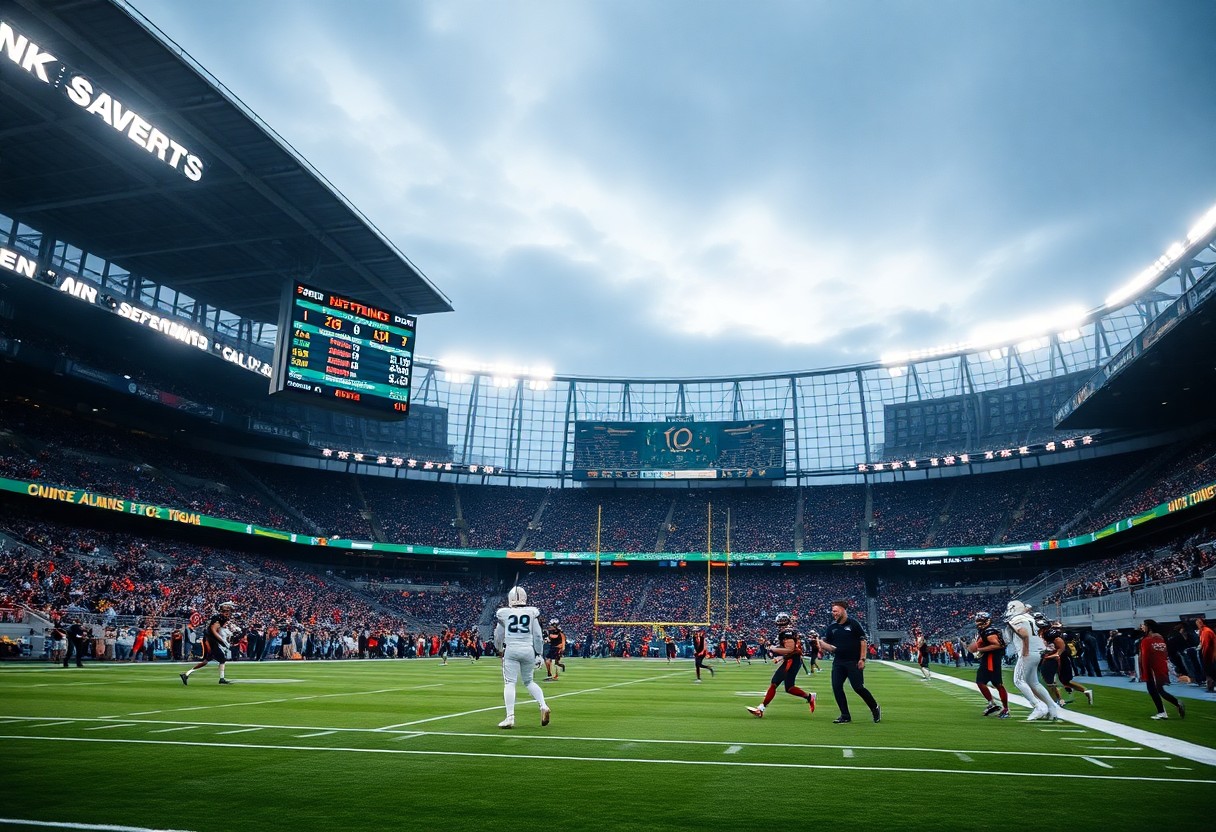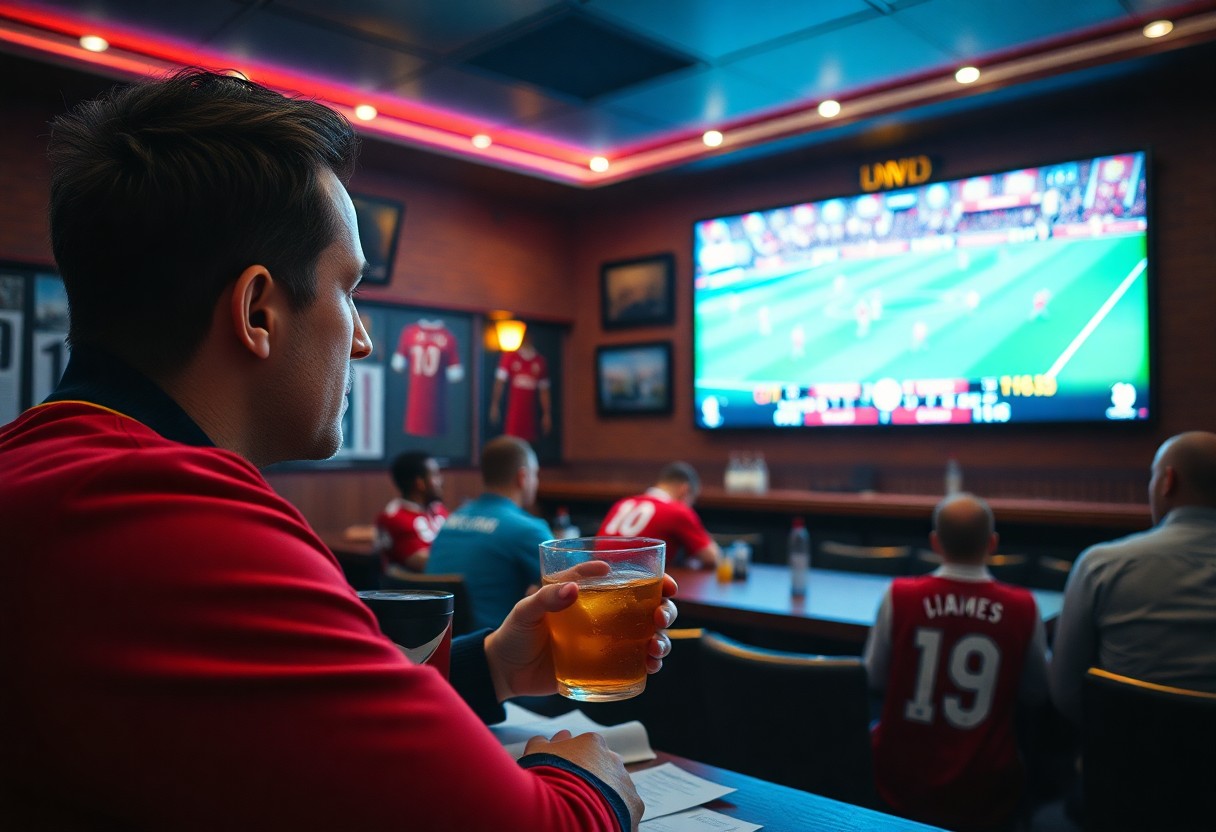Travel distances can significantly influence the performance of away teams in football, and as a bettor, you should consider this factor when placing your wagers. Long distances can lead to fatigue and disruption in a team’s routine, affecting their performance on the pitch. On the flip side, some teams thrive under pressure and may surprise you with a stellar performance, turning distance challenges into a motivating factor. By analyzing travel distances and their potential impacts, you can make more informed betting decisions and enhance your overall success in football betting.
Key Takeaways:
- Travel distance can affect the performance of away teams, with longer distances often leading to fatigue and decreased motivation, impacting the outcome of the match.
- Teams that frequently travel long distances may develop better adaptation strategies, but initial effects still often result in lower success rates in away games.
- Betters should consider travel schedules and distances when analyzing away team performance, as this can provide valuable insight for predicting match results.
The Correlation Between Travel Distance and Team Performance
Your analysis of football betting should consider how travel distance significantly affects team performance. Studies reveal that teams covering greater distances often face reduced effectiveness in their gameplay. For example, teams traveling over 200 miles report an average decline of 10% in match performance compared to their home games. This drop can reflect a lower win percentage and a decrease in scoring efficiency, making it important to take these metrics into account when placing bets on away teams.
How Travel Fatigue Shapes Game Outcomes
Travel fatigue plays a pivotal role in shaping the outcomes of away games. Players burdened with long distances often experience increased physical strain, which can lead to diminished focus and endurance during crucial moments of the match. Fatigue-related errors, both physical and mental, can hinder performance, giving the home team a significant advantage. Studies indicate that teams traveling more than 300 miles have a higher likelihood of committing fouls or missing scoring opportunities, ultimately influencing the final score.
The Role of Time Zone Differences in Away Games
Time zone differences present another hurdle for away teams, impacting their physical readiness and mental focus. Adjusting to a different time zone can disrupt players’ circadian rhythms, leading to fatigue. Research indicates that teams traveling across multiple time zones often face a decline in performance during the first few matches. You might find betting odds shifting dramatically depending on the geographical context, as teams that are out of sync with local time may struggle to match the intensity of their opponents, further skewing game outcomes.
For instance, traveling from the West Coast to the East Coast involves not only crossing time zones but also adjusting to a time difference of three hours. This adjustment can leave players feeling fatigued and out of sync, particularly if the match is scheduled for an early kickoff. Coaches often express concern over their players’ adaptability, as studies show that teams making cross-country trips frequently underperform in the first half of play, leading to missed opportunities and increased pressure to catch up later in the game. Considering these dynamics can greatly enhance your understanding of away team performance when evaluating betting odds.
Statistical Analysis of Away Team Performance Based on Distance
Examining away team performance through a statistical lens reveals significant insights related to travel distance. An analysis of the last five seasons of major leagues shows that teams traveling over 1500 miles perform notably worse, with a 15% decrease in their winning percentages compared to home games. This trend emphasizes the importance of accounting for travel when placing bets, as it reflects both team stamina and morale.
Historical Data Trends: Distance Versus Winning Percentage
Historical data demonstrates a clear link between travel distance and a team’s winning percentage. Over recent seasons, teams undertaking long journeys—typically more than 500 miles—exhibit a 20% lower win rate compared to those staying closer to home. You can leverage this trend to inform your betting choices, as these statistics highlight potential vulnerabilities in away teams when facing fatigue or adjusted schedules.
Distance Metrics That Matter: Short vs. Long Trips
Defining the impact of travel distance hinges on distinguishing between short and long trips. Short trips (under 250 miles) generally result in better performances, with clubs maintaining an average winning percentage around 48%. Conversely, long trips can lead to an average winning percentage plunging to 28%, underscoring the stressors associated with extensive travel.
This stark contrast in performance underscores the need to dissect away games further. Teams making short journeys face less disruption to their routines and enjoy the advantages of player comfort. In contrast, those traveling long distances often grapple with fatigue, time zone adjustments, and the emotional strain of being away from home. Each of these factors compounds, creating a real impact on competitiveness, which can and should influence your betting strategies.
Psychological Factors Influencing Away Team Performance
The mental aspect of playing away games can have profound implications on an away team’s performance. Factors like anxiety, confidence, and focus can shift dramatically due to the unfamiliar environment. Teams may wrestle with pressures like performance expectations and fan-hostile atmospheres that create additional stress. Players often experience a psychological burden from travel, affecting their ability to execute strategies effectively. Perceiving the complexities of these psychological impacts can provide valuable insights for your football betting strategy.
Mental Resilience: Coping with Travel Strain
Mental resilience becomes vital for away teams facing the strain of travel. Players who can adapt to the discomfort of being far from home often demonstrate better performance despite fatigue or distractions. Techniques like visualization or focused breathing help athletes maintain composure, influencing their on-pitch decision-making and overall play quality.
Team Cohesion and Its Relationship to Travel
Team cohesion significantly impacts how well away teams handle travel. The stronger the bond among players, the better they manage travel-induced stress. Cohesive teams often exhibit improved communication and collaboration, particularly in the face of adversity. Enhanced relationships foster trust, leading to more synchronized play, which can mitigate the adverse effects of long-distance travel. High-performing teams often attribute their success, even in challenging away encounters, to their mutual support and chemistry built up during both training and travel.
The ability to build and sustain strong team cohesion is crucial, especially considering that shared experiences can strengthen relationships and enhance performance under pressure. For instance, when players spend time together during long travels, they can engage in camaraderie that translates to a better understanding of each other’s play styles. Successful teams often prioritize team-building activities, whether through travel logistics or shared experiences, ensuring that they approach away games not just as isolated events, but as unified efforts. Such connection can serve as a buffer against any psychological toll that long trips may impose, ultimately sharpening your analysis of their betting odds.
Strategic Implications for Bettors
Understanding the impact of travel distance on away teams can significantly influence your betting decisions. As you consider placing bets, taking into account how far a team has traveled can provide insights into performance potential. You’ll want to track not only outcomes but also factors like local conditions, time zone differences, and their previous travel history. Incorporating these elements into your strategy can help you capitalize on potential undervalued teams, increasing your profitability and betting confidence.
Adjusting Betting Strategies Based on Travel Distance
Integrating travel distance into your betting strategy allows you to refine assessments of team performance on the road. For instance, a team traveling over 1,500 miles may experience fatigue or jet lag, impacting their gameplay. Conversely, shorter distances in familiar rivalries may mitigate travel-related drawbacks. Analyzing historical data where teams faced similar travel conditions can uncover trends that you can leverage for better betting odds.
The Importance of Rest Days and Recovery in Betting Scenarios
Evaluating rest days between matches is vital when betting, especially for away teams. A fatigued team with limited recovery time may underperform, significantly affecting their chances of winning. You should track the number of days since their last match and ensure you’re factoring in how that impacts their overall fitness and readiness for competition. A team that has had seven days of rest typically performs significantly better than one facing a short turnaround of just two days.
Research shows that in rigorous leagues, away teams with less than three days between matches lose approximately 60% of their games, highlighting the detrimental effect of insufficient recovery. Incorporating this data into your betting evaluations can enhance your decision-making processes. Monitoring the schedules and adjustments teams make for travel and rest can reveal critical opportunities for strategic bets. Aim to be aware of any player injuries or fatigue-related updates, as these can also influence performance levels significantly when evaluating potential outcomes.
Innovations in Travel and Their Impact on Team Dynamics
Recent advancements in travel technology have transformed how teams prepare for away matches, creating new opportunities for optimizing performance. With improved transportation options like luxury team buses and efficient flight logistics, teams can now travel comfortably, minimizing fatigue and anxiety associated with long journeys. This shift plays a vital role in enhancing team cohesion and mental toughness, crucial traits for successful away performances.
Analyzing Modern Travel Solutions for Athlete Welfare
Modern travel solutions cater specifically to athlete welfare by offering amenities that improve recovery and rest. Teams can now utilize biomechanic support systems, reclining seats for better sleep, and onboard nutritional options that aid in physical recovery. Such enhancements provide players with the best possible conditions during their journey, mitigating the negative impacts associated with away games.
How Technology is Changing the Away Game Landscape
The integration of technology into travel logistics significantly reshapes the away game experience for teams. Teams are now using applications and software to optimize itinerary management, ensuring timely departures, and reducing the risk of delays. GPS tracking helps monitor travel times and informs adjustments to ensure the most efficient routes are taken. In addition, advancements in communication technology allow coaches to provide real-time feedback during the journey, ensuring players remain mentally engaged ahead of their matchup.
App development has also introduced tools that assist in real-time travel monitoring and performance analytics. As teams venture far from home, platforms designed to analyze player fatigue levels during travel support coaches in making evidence-backed decisions for player utilization post-travel. These innovations harmonize with training regimens, enabling teams to tackle the psychological hurdles of away games more effectively. Moreover, better connectivity offers players access to motivational resources and mental health support, reducing the stress of competing in foreign environments.
Summing up
The impact of travel distance on away teams in football betting is significant and should be a key factor in your analysis. Longer travel distances can lead to fatigue and reduced performance, affecting the likelihood of an away win. When assessing matches, consider how far the team is traveling and how it may influence their chances. By incorporating this factor into your betting strategy, you can enhance your decision-making and improve your overall success in football betting.
Q: How does travel distance affect the performance of away teams in football matches?
A: When teams travel long distances for away games, it can significantly impact their performance. Longer travel may lead to fatigue due to disrupted sleep patterns, time zone changes, and the physical toll of long journeys. Moreover, teams might have less time to acclimate to new environments, affecting their overall readiness for the match. This can lead to reduced effectiveness on the field and possibly lower the likelihood of a win.
Q: Are there specific travel distances that are known to impact away teams more than others?
A: Yes, research has shown that travel distances exceeding certain thresholds tend to have a larger negative impact on away performance. For instance, distances over 500 miles are often cited as particularly challenging for teams, leading to increased fatigue and a disadvantage in game execution. Conversely, shorter trips, usually within 200 miles, might have a minimal effect on team performance, allowing players to arrive fresher and more focused.
Q: What strategies can teams implement to mitigate the effects of long-distance travel on their performance?
A: Teams can adopt several strategies to lessen the impact of long travel. Proper scheduling, such as arriving a day or two before the match, can help players acclimate and recover. Utilizing chartered flights can also reduce travel stress. Furthermore, teams often focus on nutrition and hydration to maintain energy levels. Mental preparation, including relaxation techniques and team bonding activities during travel, can enhance players’ focus and morale, ultimately helping to improve performance despite the travel burden.




